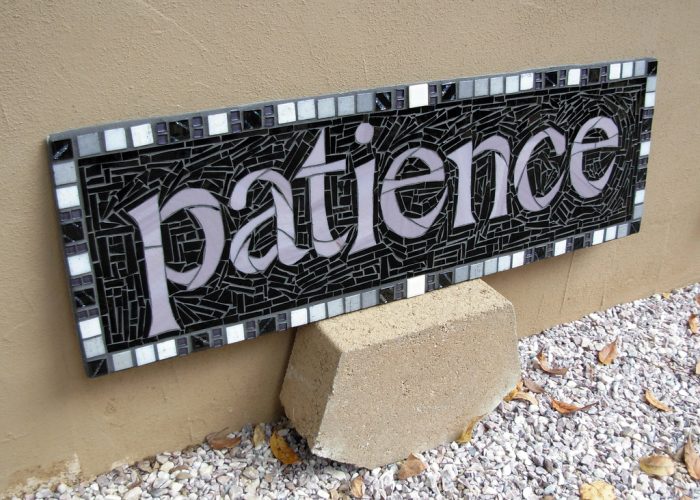
10. One should adopt a good demeanour at all times when interacting with one’s family or the general public.
If someone mentions something against one’s temperament or conducts in an unbecoming manner, then one should exercise tolerance and not lose one’s self at that time.
If one is able to politely explain to the person his mistake and correct him, he may do so, and if one feels that through explaining the person his mistake and correcting him, the matter will become worse, then one should diffuse the situation in a respectable way.
عن جابر بن عبد الله قال: قال رسول الله صلى الله عليه وسلم: كل معروف صدقة، وإن من المعروف أن تلقى أخاك بوجه طلق (سنن الترمذي، الرقم: 1970)
Hazrat Jaabir (radhiyallahu ‘anhu) reports that Rasulullah (sallallahu ‘alaihi wasallam) said, “Every good deed is an act of sadaqah, and from the good deeds is to meet your brother with a smiling countenance.”
عن أنس رضي الله عنه، قال: قال رسول الله صلى الله عليه وسلم: انصر أخاك ظالما أو مظلوما فقال رجل: يا رسول الله، أنصره إذا كان مظلوما، أفرأيت إذا كان ظالما كيف أنصره؟ قال: تحجزه، أو تمنعه، من الظلم فإن ذلك نصره (صحيح البخاري، الرقم: 2443)
Hazrat Anas (radhiyallahu ‘anhu) reports that Rasulullah (sallallahu ‘alaihi wasallam) said, “Help your brother, whether he is an oppressor or oppressed.” A person asked, “O Rasulullah (sallallahu ‘alaihi wasallam)! I will assist him (my brother) in the case where he is oppressed. However, how can I assist him in the case where he is an oppressor?” Rasulullah (sallallahu ‘alaihi wasallam) said, “Stop him or prevent him from his oppression, as this will be the way for you to assist him.”
11. One should adopt oral and physical hygiene at all times as this is part of the mubaarak teachings of Islam and the sunnah of Rasulullah (sallallahu alaihi wasallam).
Hence, the hadith emphasizes using the miswaak to keep the mouth clean and having a bath to keep the body clean.
Similarly, one should keep one’s heart and mind clean at all times and not harbour ill feelings, malice and jealousy in one’s heart for the creation at all times.
عن أبي أيوب رضي الله عنه قال قال رسول الله صلى الله عليه وسلم أربع من سنن المرسلين الحياء والتعطر والسواك والنكاح (سنن الترمذي، الرقم: 1080)
Hazrat Rasulullah (sallallahu ‘alaihi wasallam) said, “Four actions are from the sunnats of all the Ambiyaa (alayhimus salaam); adopting hayaa (modesty in all spheres of human living), applying itr, using the miswaak, and making nikaah (getting married).”
عن زاذان قال سأل رجل عليا عن الغسل قال اغتسل كل يوم إن شئت فقال الغسل الذي هو الغسل قال يوم الجمعة ويوم عرفة ويوم النحر ويوم الفطر (مسند الشافعي على ترتيب السندي، الرقم: 114)
Hazrat Zaazaan (rahimahullah) reports that on one occasion, a certain person asked Hazrat Ali (radhiyallahu anhu) regarding (when he should perform) ghusl. Hazrat Ali (radhiyallahu anhu) replied, “You may perform ghusl daily if you wish.” The person then asked, “(I am asking about) the ghusl which is the most important ghusl.” Hazrat Ali (radhiyallahu anhu) answered, “(The most important occasions of ghusl are) the Day of Jumuah, the Day of Arafah, the Day of Eidul Adha and the Day of Eidul Fitr.”
عن أبي هريرة، قال: قال النبي صلى الله عليه وسلم: لله تعالى على كل مسلم حق أن يغتسل في كل سبعة أيام يوما (صحيح البخاري، الرقم: 898)
Hazrat Abu Hurairah (radhiyallahu anhu) reports that Rasulullah (sallallahu alaihi wasallam) said, “It is the right of Allah Ta’ala upon every Muslim that he takes a ghusl (at least) once a week.”
عن أنس بن مالك قال لي رسول الله صلى الله عليه وسلم يا بني إن قدرت أن تصبح وتمسي وليس في قلبك غش لأحد فافعل ثم قال لي يا بني وذلك من سنتي ومن أحيا سنتي فقد أحبني ومن أحبني كان معي في الجنة (سنن الترمذي، الرقم: 2678)
Hazrat Anas (radhiyallahu ‘anhu) reports, “Rasulullah (sallallahu ‘alaihi wasallam) once said to me, ‘O my beloved son! If you are able to spend the morning and evening in the condition that there is no ill feeling (and malice) in your heart for any person, then do so.’ Rasulullah (sallallahu ‘alaihi wasallam) thereafter said to me, ‘O my beloved son! That (i.e. not harbouring ill feelings and malice for people) is my sunnah (my blessed way), and the one who revives my sunnah has love for me, and the one who has love for me will be with me in Jannah.’”
عن صالح بن أبي حسان، قال: سمعت سعيد بن المسيب، يقول: إن الله طيب يحب الطيب، نظيف يحب النظافة، كريم يحب الكرم، جواد يحب الجود، فنظفوا، أراه قال، أفنيتكم ولا تشبهوا باليهود قال: فذكرت ذلك لمهاجر بن مسمار، فقال: حدثنيه عامر بن سعد بن أبي وقاص، عن أبيه، عن النبي صلى الله عليه وسلم مثله، إلا أنه قال: نظفوا أفنيتكم (سنن الترمذي، الرقم: 2799)
Hazrat Sa’eed bin Musayyib (rahimahullah) is reported to have said, “Certainly Allah Ta’ala is pure and He loves purity. Allah Ta’ala is clean and loves cleanliness. Allah Ta’ala is kind and loves kindness. Allah Ta’ala is generous and loves generosity. Hence, keep the courtyards of your homes clean and do not resemble the Jews (in their untidiness).”
12. If you doubt any statement of your Muslim brother with whom you had some interaction, then if it is possible for you to enquire from him regarding his statement and clear your mind of the doubt, then do so.
Otherwise, if it is not possible for you to enquire from him, and his statement can be interpreted in two ways, then give him the benefit of the doubt and do not entertain misgivings regarding him.
This is the mubaarak sunnah of Rasulullah (sallallahu alaihi wasallam). Entertaining doubts regarding an innocent person can cause one to become sinful.
يَأَيُّهَا الَّذِينَ آمَنُوا اجْتَنِبُوا كَثِيرًا مِّنَ الظَّنِّ إِنَّ بَعْضَ الظَّنِّ إِثْمٌ (الحجرات: 12)
O you who believe! Abstain from many of the suspicions, indeed some of the suspicions are a sin.
عن عمر بن الخطاب رضي الله عنه قال: لا تظنن بكلمة خرجت من أخيك سوءا وأنت تجد لها في الخير محملا (أخرجه أحمد في الزهد كما في الدر المنثور للسيوطي 7/565)
It is reported that Hazrat Umar (radhiyallahu anhu) said, “Do not entertain evil thoughts regarding a statement of your brother, while you can find a good interpretation for his statement.”
 Ihyaaud Deen An Effort to Revive Deen in Totality
Ihyaaud Deen An Effort to Revive Deen in Totality



